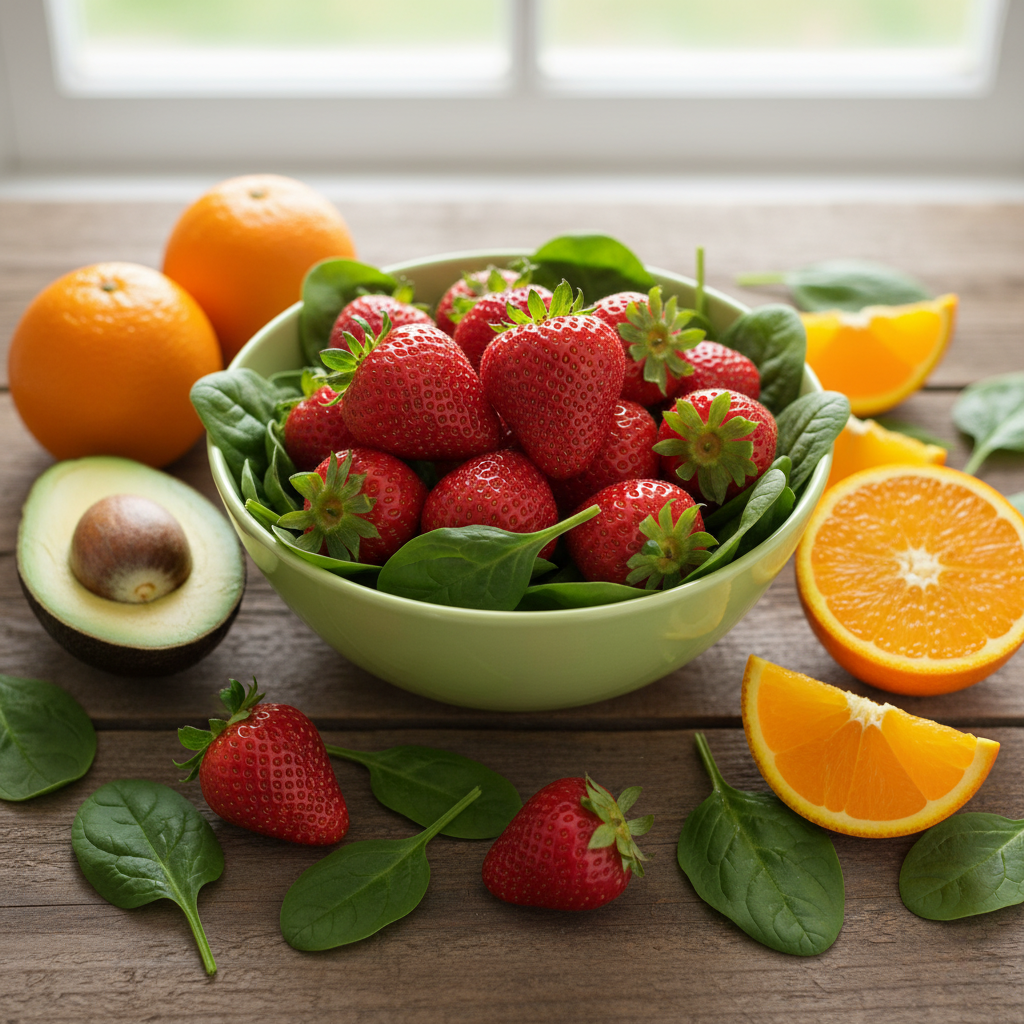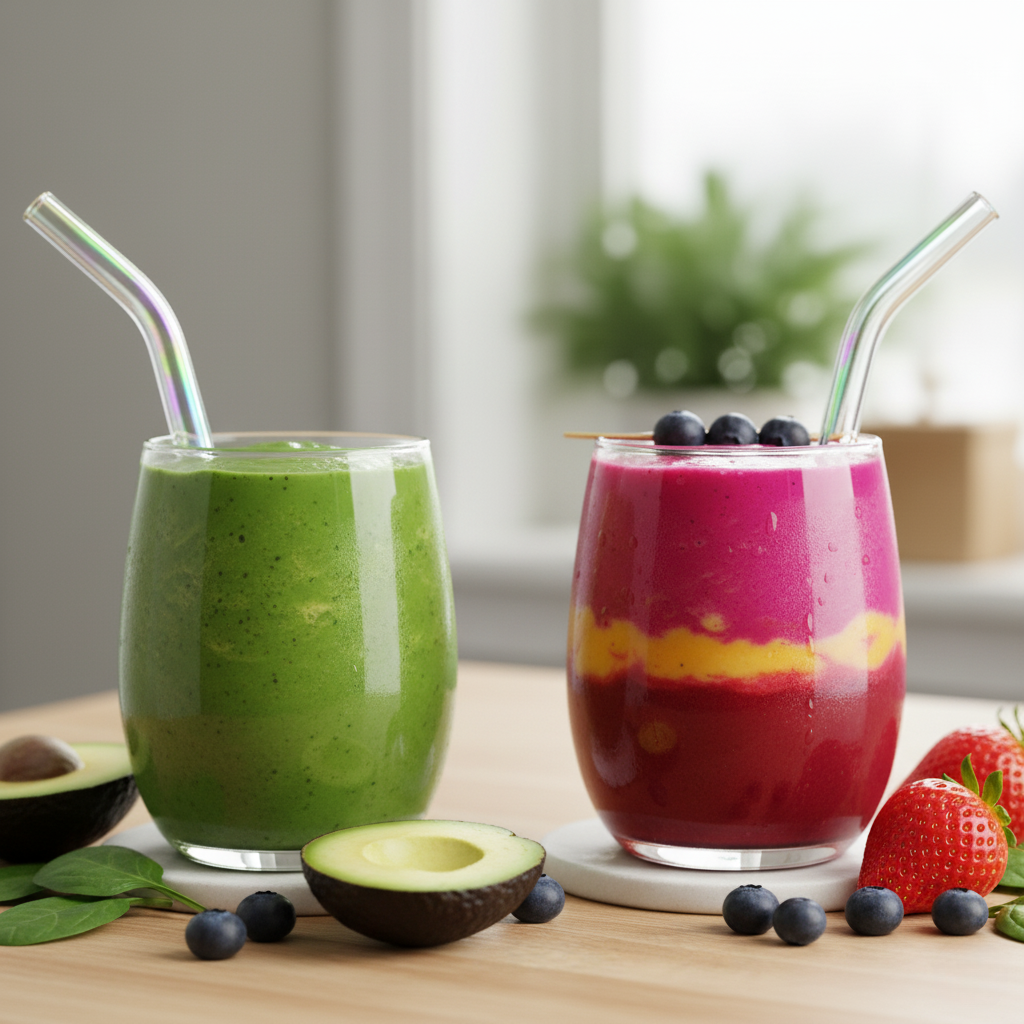
Bariatric surgery is a powerful step in a weight loss journey, but this process is not only about weight control. Supporting the body’s healing process and strengthening the immune system are vital for long-term health. At this point, antioxidants in bariatric nutrition step in like superheroes.
After sleeve gastrectomy or other obesity surgeries, the body becomes more vulnerable to a condition called oxidative stress. Antioxidants fight against free radicals—unstable molecules that cause this stress—helping to speed up healing and making you more resistant to infections.

What Are Antioxidants and Why Are They So Important After Surgery?
Antioxidants are compounds that fight against “free radicals,” unstable molecules that damage our cells. Major surgeries like bariatric operations can increase free radical production. If left unchecked, these free radicals can lead to cell damage, delayed wound healing, and a weakened immune system.
That’s why antioxidants in bariatric nutrition are not just “vitamins” but also fundamental building blocks of your recovery process.
Your Immune Shield: Essential Antioxidant Groups
Vitamin C: The Healing Accelerator
Vitamin C is a critical antioxidant, especially for collagen production and tissue repair. It directly supports wound healing after surgery and enhances the function of immune cells.
Best Sources of Vitamin C:
- Citrus fruits (oranges, tangerines)
- Kiwi and strawberries
- Broccoli and red bell peppers
- Dark leafy greens like spinach
Tip: Since your stomach capacity is smaller, consuming these foods in purée or smoothie form makes digestion easier.
Vitamin E: The Protective Shield of Cell Membranes
Vitamin E is a fat-soluble antioxidant that protects cell membranes from free radical damage. Although fat absorption can decrease after bariatric surgery, it is still possible to get enough vitamin E from the right sources.
Healthy Sources of Vitamin E:
- Raw almonds and hazelnuts (in purée or flour form)
- Avocado
- Olive oil and flaxseeds
Vitamin A: The Defense Line Against Infections
Vitamin A plays a key role in the production of immune cells and the maintenance of mucosal barriers (such as the gut and respiratory tract). This strengthens the body’s first line of defense against infections.
Easily Digestible Sources of Vitamin A:
- Sweet potatoes and pumpkin (in purée form)
- Dark leafy greens like spinach and Swiss chard
- Egg yolk
Polyphenols: The Hidden Power of Plants
Polyphenols are plant-based compounds with strong antioxidant properties. They help reduce inflammation and neutralize free radicals in the body.
Polyphenol-Rich Options:
- Green tea (unsweetened)
- Small amounts of dark chocolate (70% or higher cocoa)
- Dark-colored berries like blueberries and blackberries

Practical & Tasty Antioxidant Smoothie Recipes
Smoothies are an excellent solution for liquid and puréed nutrition in the postoperative period.
Green Detox Smoothie:
- A handful of spinach
- Half an avocado
- A few slices of cucumber
- Half a cup of water or almond milk
Red Power Smoothie:
- 4–5 strawberries
- A handful of blueberries
- 1 tablespoon of yogurt or kefir
Blend all ingredients and sip slowly.
Are Supplements Necessary After Bariatric Surgery?
Since nutrient absorption decreases after surgery, it may be difficult to get enough antioxidants through diet alone. That’s why it’s essential to regularly take multivitamin and mineral supplements recommended by your doctor or dietitian. Avoid taking high-dose supplements on your own.
For more details, see our internal guide on Vitamin and Mineral Supplements After Bariatric Surgery: What, When, and How Much?
Conclusion: Build Your Immunity Through Nutrition
In bariatric nutrition, antioxidants are not a luxury but a necessity for a smooth recovery and a strong immune system. Every color you add to your plate is a signal of healing for your body. With a balanced diet rich in vitamins C, E, A, and polyphenols, you can start your post-surgery life healthier and more energetic.
Remember, your doctor and dietitian are always your best guides on this journey.
Frequently Asked Questions (FAQ)
Q1: Why are antioxidants so critical after bariatric surgery?
A1: Surgery increases “oxidative stress” in the body. Antioxidants fight the free radicals that cause this stress, protecting cells, accelerating wound healing, and strengthening a weakened immune system.
Q2: When can I start consuming antioxidant-rich foods after surgery?
A2: This depends on your surgery type and the dietary plan tailored by your dietitian. Generally, smoothies and purées can be introduced during the liquid and puréed phases, with more variety added as you transition to solid foods.
Q3: Can I take antioxidant supplements on my own?
A3: No. Since vitamin and mineral absorption changes after bariatric surgery, only your doctor or dietitian can determine what type and dosage of supplements you need. Incorrect dosages may be harmful.
Q4: Does cooking destroy antioxidants in vegetables?
A4: Some antioxidants (especially vitamin C) are sensitive to heat. Steaming or quick sautéing preserves nutrients better than boiling. Raw options in smoothies or salads are also excellent.
Q5: What are the most practical antioxidant sources?
A5: Dark berries (blueberries, blackberries), leafy greens (spinach), avocado, raw nut butters (almond butter), and green tea are powerful antioxidant sources that can easily be added to your daily diet.

